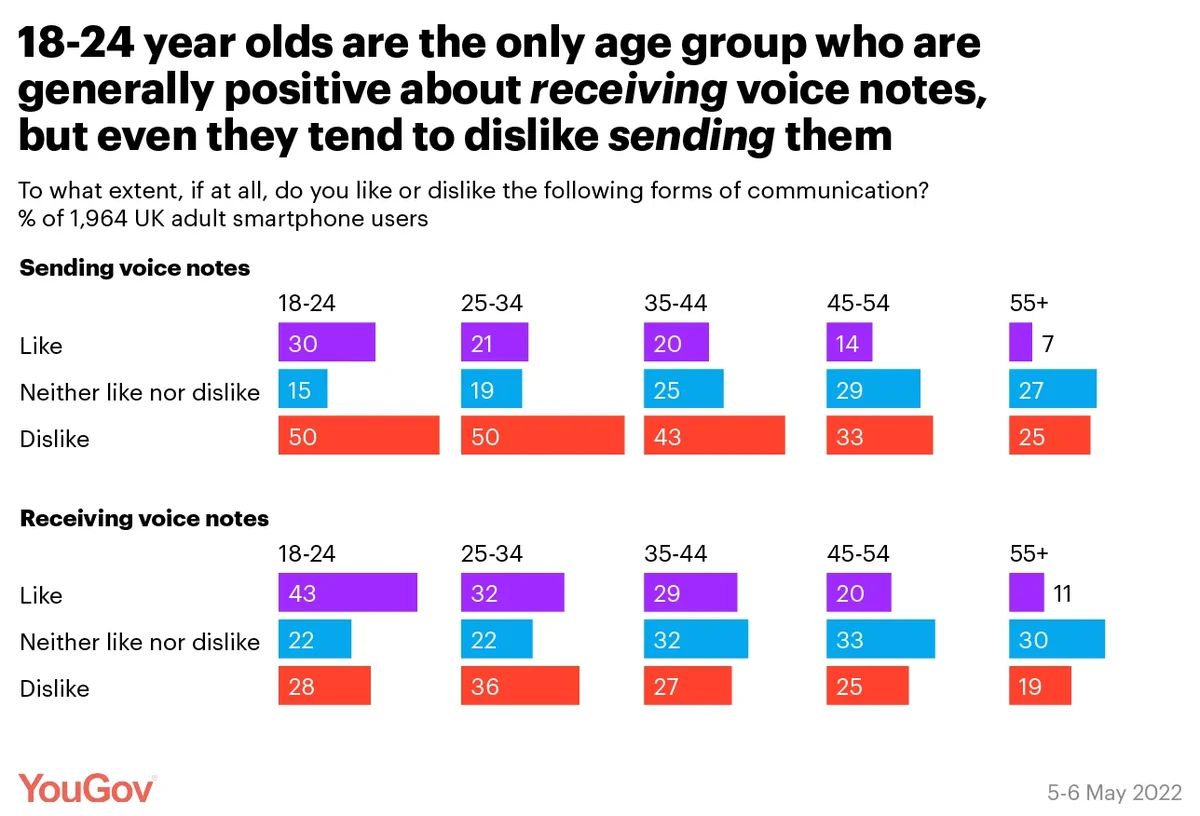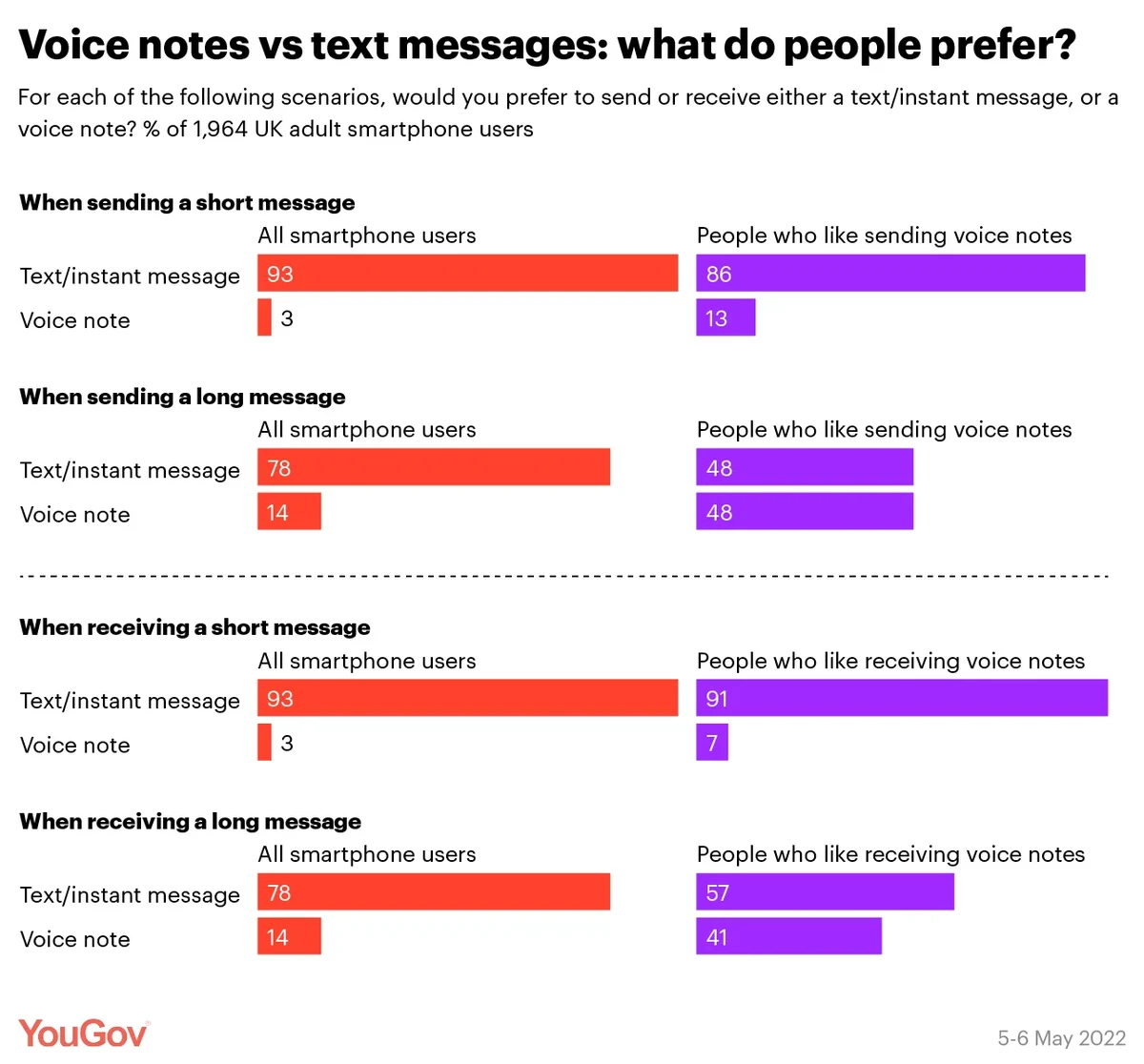Young people tend to like receiving them, but all social groups tend to dislike sending them
According to WhatsApp, seven billion voice notes are sent every single day using the platform. A Metro article last year proclaimed that Britons had "all fallen in love with audio messaging" - but is that remotely true? New YouGov research now looks at Britons’ voice note habits.
How often do people send voice notes?
Voice notes are still used far less often than traditional forms of communication. Only 5% of smartphone users send voice notes on a daily basis, while another 9% send them several times or once a week.
People are slightly more likely to be recipients of voice notes: 7% receive them on a daily basis, and another 13% several times or once a week.
Currently, 63% of smartphone users have never sent a voice note, while approaching half (47%) have yet to receive one.
There is, however, a substantial generational gap, with usage among young people more frequent. One in eight 18-24 year olds (12%) send voice notes on a daily basis, while a further 18% receive them on a weekly basis. Only 20% of this age group never receive voice notes, although 40% never send them.
How many people actually like voice notes?
Voice notes aren’t exactly new – Whatsapp introduced the function in 2013 – and part of the reason for their slow adoption to date may be that they simply are not well-liked.
Only 16% of smartphone users say they like sending voice notes, compared to 36% who dislike doing so. Another quarter (24%) neither like nor dislike doing so. When it comes to receiving voice notes, people are more split, with 22% liking it, 25% disliking it and 29% ambivalent.
Video calls are a similar technology that has been around for a while but didn’t start taking off until much more recently. Smartphone users are far more likely to have an opinion on video calls as they are far more likely to have experienced them, but in net terms, receiving a voice note is comparably unpopular to receiving a video call. Sending voice notes, however, is a more unpopular task than making a video call.
Even among the youngest Britons, who are the most positive about sending voice notes, they remain unpopular: half of 18-24 year olds dislike sending them, compared to 30% who like doing so.
This age group does, however, tend to like receiving voice notes, by 43% to 28% who dislike it. They are the only age group for whom this is the case, with the others much more closely split.

Are voice notes a better way of sending long messages?
Voice note functionality generally sits within instant or text messaging services, but given the choice – whether it be sending or receiving long or short messages – people vastly tend to prefer text to voice notes.
It is not impossible, however, that voice notes will someday take over as the preferred way to send a long message. Among those who say they like sending voice notes, when asked how they would prefer to send a long message they are split 48% / 48% between using a voice note or writing their message as text.
Similarly, 41% of those who like receiving voice notes would prefer to receive a long message as a voice note rather than as text.

How long is too long for a voice note?
While articulating a message verbally can be more convenient for the sender, it can be more of a chore for the recipient as reading speeds are generally faster than verbal delivery. This can become even more acute the longer a message is – so how long do people think is too long for a voice note?
Among all smartphone users with an opinion, the majority (65%) consider a one minute voice note to be too long, with half (48%) having lost patience at the 45 second mark.
Among those who actively dislike receiving voice notes, most (57%) will have grown frustrated by 30 seconds in.
By contrast, among those who like receiving voice notes, you won’t have alienated a majority (60%) until you reach the one and a half minute mark, although half (49%) consider a minute to be too long.











